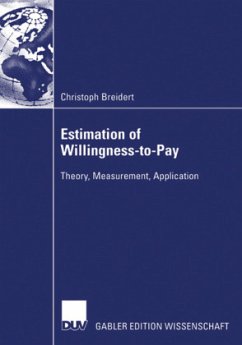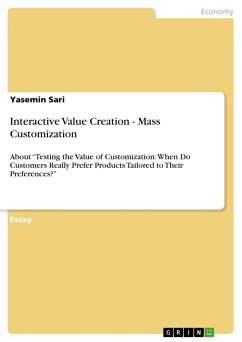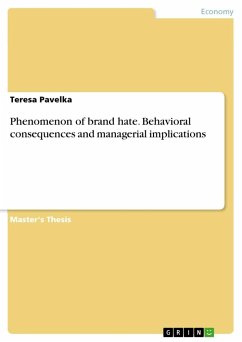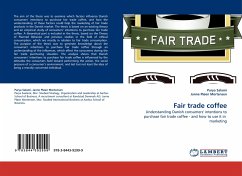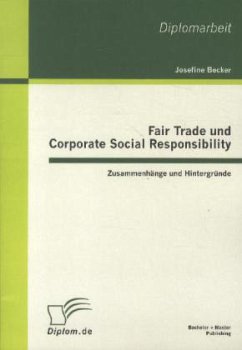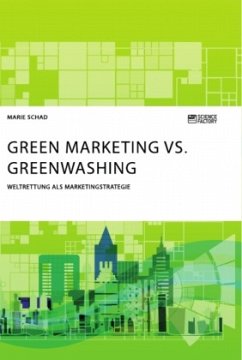
Willingness to pay for Fair Trade products: Analysis and implications

PAYBACK Punkte
0 °P sammeln!
Bachelor Thesis from the year 2012 in the subject Business economics - Offline Marketing and Online Marketing, grade: 1,7, Munich University of Applied Sciences (Fakultät für Betriebswirtschaft), language: English, abstract: The aim of the present thesis is to analyze consumers' willingness to pay for Fair Trade products. Specifically, the thesis asks whether (a) people are willing to pay a premium for Fair Trade products, (b) how much extra they are willing to pay, and (c) which factors influence the consumers' willingness to pay. To answer these questions, findings of the most recent quant...
Bachelor Thesis from the year 2012 in the subject Business economics - Offline Marketing and Online Marketing, grade: 1,7, Munich University of Applied Sciences (Fakultät für Betriebswirtschaft), language: English, abstract: The aim of the present thesis is to analyze consumers' willingness to pay for Fair Trade products. Specifically, the thesis asks whether (a) people are willing to pay a premium for Fair Trade products, (b) how much extra they are willing to pay, and (c) which factors influence the consumers' willingness to pay. To answer these questions, findings of the most recent quantitative research on Fair Trade are studied. A total of 24 separate empirical papers on Fair Trade and willingness to pay are identified and reviewed. The main results are: (1) about 85% participants are willing to pay a price-premium for Fair Trade products; (2) the price-premium people are willing to pay range from 3% to 80%, with the median of 17%; (3) these values are somewhat lower in studies with more controlled research (i.e., experiments) - the prevalence is 70% and the price-premium 10%; (4) the higher price of Fair Trade products has an inconsistent impact on consumers' willingness to pay - for some it remains a significant barrier to the purchase, for others a sign of product credibility; (5) the level of income is insignificant for FT consumption; (6) demographic variables are rather useless for predicting Fair Trade consumption; (7) ethical and environmental values matter; and (8) positive attitudes toward Fair Trade increase consumers' buying behavior. Based on these results, implications for marketing are drawn.








